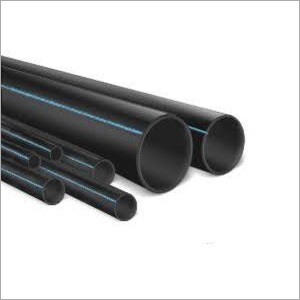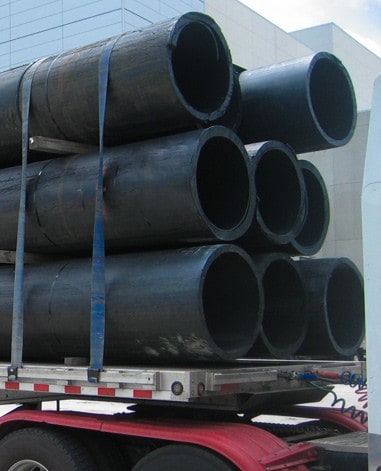How American Plastics HDPE Pipe for Oilfield Supports Energy Infrastructure
Wiki Article
Comprehending the Trick Benefits of HDPE Pipeline for Water and Wastewater Administration
Making use of HDPE pipeline in water and wastewater monitoring offers numerous advantages that merit factor to consider. Its phenomenal durability and lengthy life expectancy make it a preferred selection for lots of projects. In addition, the material's resistance to corrosion and chemical damage boosts its dependability in various settings. The advantages extend past simply longevity and resistance. Pipe Supplier American Plastics Midland. Discovering its cost-effectiveness and environmental influence discloses a lot more compelling factors for its prevalent fostering in modern infrastructurePhenomenal Resilience and Durability

HDPE pipe stands apart for its extraordinary durability and long life, making it a preferred choice in water management systems. Constructed from high-density polyethylene, these pipelines can withstand significant stress and stress and anxiety, guaranteeing trusted performance over time. Their robust nature allows them to withstand severe ecological conditions, consisting of temperature level fluctuations and dirt activities, which can trigger other materials to fail.
The lifespan of HDPE pipelines often exceeds 50 years, giving a cost-effective solution for municipalities and sectors alike. In addition, the product's lightweight buildings streamline installment, reducing labor prices and durations. This durability minimizes the need for frequent repair work or replacements, even more improving its financial charm.
In water administration applications, the dependability of HDPE pipes indicates less interruptions and improved service continuity, making them indispensable to lasting infrastructure advancement. The mix of durability and durability solidifies HDPE's function as a cornerstone in reliable water management remedies.

Resistance to Corrosion and Chemical Damages
While numerous products give in to deterioration and chemical damages over time, HDPE pipelines display remarkable resistance, making them excellent for different water management applications. This durability stems from the molecular framework of high-density polyethylene, which is inherently non-reactive and does not corrode like steels or deteriorate from direct exposure to harsh chemicals. Because of this, HDPE is extremely effective in settings with aggressive materials, such as wastewater systems that may include acids, bases, and natural solvents.
Additionally, HDPE pipelines can endure ecological aspects such as soil acidity and saline problems, even more improving their suitability for diverse applications (Texas hdpe pipe manufacturer). Their ability to maintain architectural stability in time reduces the danger of leaks and failings, which is vital in ensuring the safety and integrity of water circulation and wastewater monitoring systems. The resistance to deterioration and chemical damage significantly adds to the total performance and long life of HDPE piping remedies.
Cost-Effectiveness and Financial Advantages
When considering the financial implications of water management systems, the cost-effectiveness of HDPE pipes becomes apparent. These pipes supply lower setup and maintenance prices contrasted to conventional products like metal or concrete. Their light-weight nature streamlines transportation and setup, resulting in decreased labor expenditures. In addition, HDPE pipes display a long lifespan, commonly surpassing 50 years, which translates to fewer substitutes and lasting financial savings.In addition, have a peek here the resistance of HDPE to corrosion and chemical damage minimizes the need for costly repairs and replacements. The pipes additionally sustain efficient water flow, minimizing power expenses related to pumping systems. By alleviating leakages and water loss, HDPE pipes add to significant economic benefits for municipalities and markets alike. In general, the initial investment in HDPE piping can produce considerable monetary returns over the life-span of the water management system, making it a prudent option for lasting facilities growth.
Environmental Sustainability and Minimized Impact

Versatility and Adaptability in Setup
As a result of their special residential properties, HDPE pipelines use amazing adaptability and adaptability in installment, making them ideal for a wide variety of applications. Their light-weight nature permits much easier handling and transport, decreasing labor costs and installation time. HDPE pipes can be curved and shaped to fit different terrains and project needs, which is specifically useful in testing settings.Furthermore, their resistance to deterioration and chemical damages enables setup in diverse setups without the need for specialized protective coverings. The capability to fuse joints produces a continual, leak-free system, boosting the overall stability and dependability of the installment. HDPE's adaptability additionally stainless steel pipe fittings accommodates ground motion, lowering the risk of damage in areas susceptible to moving dirt. On the whole, these characteristics make HDPE pipes not only functional yet likewise a recommended selection for water and wastewater monitoring systems.
Frequently Asked Questions
How Does HDPE Pipe Compare to PVC in Water Management Applications?
HDPE pipeline uses remarkable versatility, resistance to rust, and toughness contrasted to PVC. Its lighter weight assists in less complicated installation, while its long life expectancy lowers replacement costs, making HDPE a preferred selection in water management applications.see page
What Is the Lifespan of HDPE Piping Under Typical Conditions?
Under normal problems, HDPE pipes can have a life expectancy ranging from 50 to 100 years. Their longevity and resistance to rust add to their lasting efficiency in numerous applications, making them a reputable choice for facilities.Are HDPE Pipeline Recyclable After Their Solution Life?
Yes, HDPE pipelines are recyclable after their service life. Pipe Supplier American Plastics Midland. They can be processed and repurposed right into brand-new products, greatly lowering ecological influence and advertising sustainability within the industry, making them a green selection for piping solutionsWhat Is the Installation Refine for HDPE Pipeline?
The installment process for HDPE pipes involves site prep work, trenching, pipeline fusion or mechanical signing up with, backfilling, and pressure testing. Appropriate methods ensure a long lasting and efficient system for delivering water and wastewater effectively.Can HDPE Pipes Be Used for Both Safe And Clean and Non-Potable Water Solutions?
Yes, HDPE pipelines can be utilized for both safe and clean and non-potable water supply. Their adaptability, sturdiness, and resistance to rust make them suitable for different applications, ensuring risk-free and effective transport of water in different contexts.Report this wiki page